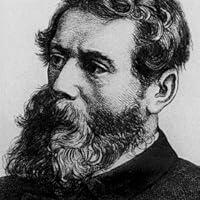
Ludwig Feuerbach
Sull'autore
Ludwig Feuerbach was a German philosopher and one of the key figures in the development of modern atheism and existentialism. His work primarily focused on religion and human nature, arguing that God is a projection of human qualities and desires. Feuerbach's critique of religion laid the groundwork for later thinkers, including Karl Marx and Friedrich Engels, who would adopt and further develop his ideas about the human essence and material conditions of existence. He believed that understanding humanity's essence was essential for overcoming alienation caused by religious doctrines.
Feuerbach's most influential work, "The Essence of Christianity," dissected Christian beliefs and emphasized that the divine attributes attributed to God are reflections of human qualities. By proposing that the divine is a human creation, he significantly altered the philosophical landscape of his time. His thoughts not only impacted philosophy but also influenced the fields of psychology and sociology, encouraging a shift towards a more human-centered understanding of existence. Through his explorations of materialism and humanism, Feuerbach has left a lasting legacy in the realm of philosophy and beyond.